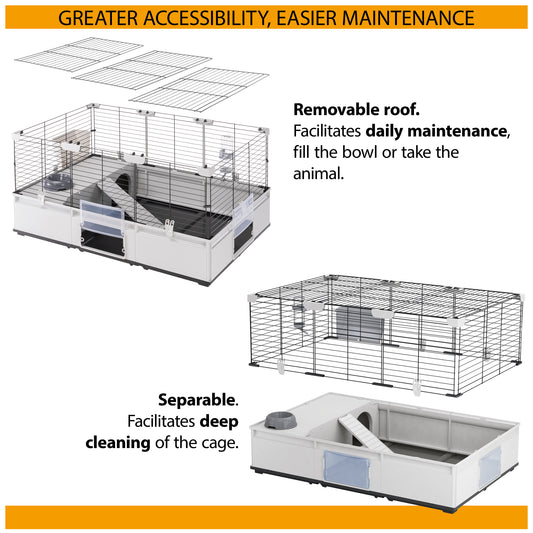Grief in animals is not well understood but as dogs can develop strong bonds with those around them it is thought that the experience of loss can have a profound impact on them. Research carried out at the University of Milan in 2022 looked at households with multiple dogs where one had recently died and found that 86% of surviving dogs had shown behavioural changes after the death. History is also peppered with tales of dogs who have mourned the loss of their owner – such as Greyfriars Bobby who, when his owner John Gray died, spent the rest of his life sitting on his master’s grave.
Signs a dog is grieving
Not all dogs will display outward signs of grief but there are some common behaviours that are often seen when a dog experiences loss. These include signs of depression including:
- Loss of appetite
- Change in sleeping patterns
- Being more clingy
- Loss of interest in walks
- Increased vocalisation
- Being withdrawn or hiding away
- Acting out of character
What can you do to help?
A grieving dog will need space and time to come to terms with the loss of their companion but there are some things an owner can do to help the process:
- Maintain your dog’s normal routine as much as possible, keeping walks and mealtimes as usual.
- Keep your dog occupied with puzzle toys and brain games. This will help distract them and give them something to do.
- Give your dog the attention they need if they are more clingy than usual. Just spend time sitting and stroking them if that is what they want.
- If your dog enjoys having visitors to the home, consider inviting some friends round to play with your dog.
- Try to minimise the amount of time your dog is left home alone but if you need to leave them make sure they have something to do while you’re away – like a stuffed Kong toy.
- A canine pheromone diffuser or spray can help to calm an anxious or unsettled dog.
Getting another dog
You might be tempted to get another dog straight away if your surviving dog is showing signs of missing their companion. Dogs are sociable and used to living in family groups so generally adapt well to a new pet if introductions are carried out slowly. However, you should only get another pet if you’re sure it’s the right thing for you and your family. It is likely that you – as well as your dog – will need time to come to terms with the loss before you think about adding another pet to the family. Pets take time to grieve, just as we do, and their individual needs must be taken into account before any decisions are made.
When to seek veterinary advice
If your dog has been off its food for more than two days you should get them checked over by your vet. Also, don’t assume that any behavioural changes in your pet are a result of grief. It is important to get them checked over to rule out any underlying health problems.
If you enjoyed this article, you may be interested in:
Introducing Your Dog to Your New Baby









